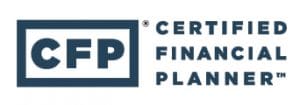Financial Planning for College-Bound Families
We’re here to help you maximize educational opportunities while minimizing your out-of-pocket expenses.
How Do Clients Benefit From Working with wHealth Advisors for College Planning?
Families often feel they must choose between saving for retirement or college. Whether you have a newborn or a college-bound child in high school, the cost of college can seem daunting. Working with financial planners that know the nuances of college financing can save families thousands of dollars and ensure that other goals aren’t derailed in the process.
Pay Less for College
Through innovative strategies, tax planning, and knowing how the financial aid system works, we help families lower the cost of college.
Stay on Track
We'll evaluate your college funding needs within your overall financial plan to make sure you also meet your other key goals like a secure retirement.
Save Time
Whether school cost analyses, filling out financial aid forms, or assisting in financial aid appeals, wHealth Advisors handles much of the heavy lifting.
Gain Peace of Mind
By working with a financial planner dedicated to the college planning process, you can have the confidence knowing that you received the best value possible for the school you decide.
Timeline for Saving For College
While every case is unique and we need to plan according to your family’s personal financial situation, here are our recommended planning strategies based on the age of your college-bound student:
Primary Focus: Saving for College
Planning Strategies:
- Tax Planning
- Cash Flow Planning
Primary Focus: Paying for College
Planning Strategies:
- Tax Planning
- Cash Flow Planning
- Financial Aid Planning
- Debt Management Planning

College Funding For Families with High School Students
If you are a typical parent with college-bound students, you are likely overwhelmed by the college process, particularly the cost of college. College is now the second most expensive purchase most parents will make in their lifetimes after a home. The college process has become more complex and time consuming, and a small mistake can cost thousands of dollars.
We are dedicated to helping families navigate the college process and find the best school fit for their student at a great value to the family.
Our College Planning Offerings for Families with High School Students
SERVICE OFFERING |
Foundation Plan $1,800 |
Capstone Plan: For ongoing clients only |
|---|---|---|
Personal Service |
||
|
One-on-One Coaching |
|
|
|
Unlimited Advisor Access |
|
|
Technology |
||
|
Access to Award Winning College Planning Software |
|
|
|
Access to Financial Literacy Course for Students |
|
|
Projection |
||
|
Review Income, Assets, and Taxes to Analyze Current Financial Situation |
|
|
|
Calculate Estimate of Expected Family Contribution (EFC) |
|
|
|
Discuss Planning Strategies to Lower EFC |
|
|
|
Determine Eligibility for Need-Based or Merit-Based Aid |
|
|
|
Reviewing Current College Funding Plan and Potential Problems |
|
|
School Selection |
||
|
Review Current College List and Explore the "True Cost" Verses the "Sticker Price" |
|
|
|
Recommend Up to 20 Target Schools That Would Provide Best Value Based on EFC |
|
|
Financial Aid Forms |
||
|
Preparation of Financial Aid Forms (FAFSA and CSS Profile) |
|
|
Financial Aid Awards |
||
|
Conduct a Financial Aid Award Analysis |
|
|
|
Evaluate Appeal Opportunities and Strategies |
|
|
|
Assist in Drafting of Financial Aid Award Appeals Where Applicable |
|
|
|
Discuss Revised Financial Aid Offers |
|
|
How To Pay | ||
|
Development of Asset Distribution Strategies |
|
|
|
Explore Additional Funding Strategies |
|
|
|
Provide a Plan to Pay for All Fours Years of College |
|
|
|
Integrate Plan with Existing Tax, Investment and Retirement Strategies |
|
|
GET YOUR FREE COLLEGE MONEY REPORT™
It gives you answers to the three critical things every family needs to know before entering the college funding maze.
What is the process of working with a college planner?
Step #1
Step #2
Step #3
Step #4
Step #5
Step #6
Late-Stage College Funding Frequently Asked Questions
What is financial aid?
Financial aid is any form of funding that helps students and families pay for college. This financial assistance covers educational expenses including tuition, room and board, books, and fees. Financial aid includes grants, scholarships, loans, and work-study jobs.
What is Expected Family Contribution (EFC)?
Your EFC is an index number that college financial aid offices use to determine how much financial aid you would receive if you attended their school. This number represents what your family is expected to pay towards the cost of college. The EFC is calculated according to a formula that includes taxed and untaxed income, assets, family size, and the number of family members who will attend college during that year.
Important: Your EFC is not the amount of money your family will have to pay for college. Colleges use this number as a guideline to calculate how much financial aid you are eligible to receive, which will vary by institution.
How is college financial aid calculated?
Need based financial aid is calculated using the following formula:
Cost of Attendance (COA) – Expected Family Contribution (EFC) = Financial Need
Each school determines how much, if any, of the financial need they will meet.
What are merit based scholarships?
Merit scholarships are typically awarded on the basis of academic, athletic or artistic merit, in addition to special interests. Some merit scholarships also consider financial need, but rewarding talent is the primary objective.
Can we get financial aid if we have college savings?
Since a large part of financial aid comes in the form of loans, saving for college is always a good idea. A family’s expected contribution to college is calculated based mostly on income, so while savings plays a role, it is not a large part of the formula.
Can I use my IRA for college funding?
Both a traditional IRA and a Roth IRA can be used to pay for college expenses although there are differences between the two.
A Roth IRA is funded with after-tax dollars. All contributions made to a Roth IRA can be removed without any penalties or taxes being owed. If you withdraw earnings as well as contributions, the earnings will be taxed if you have owned the Roth IRA for less than five years
A traditional IRA is funded with pre-tax dollars. If traditional IRA withdrawals are used for qualified education expenses, you can avoid paying the 10% early withdrawal penalty, but you will still be responsible for paying income tax on the entire amount, since the IRA was funded with pre-tax dollars
Common College Financial Planning Mistakes
Not having the college money talk before searching for colleges
Not knowing your Expected Family Contribution (EFC) and what it means
Not submitting financial aid forms
Having too much income or assets in student’s name
Thinking that you will get more financial aid if you don’t put money aside for college
Using the wrong college savings accounts
Using retirement funds to pay for college
And many more… Reach out to us for more details
GET YOUR FREE COLLEGE MONEY REPORT™
Find the answers your family needs to get the most free money for college.

SAVING FOR COLLEGE
Traditionally, planning for college has been limited to a parent or family member opening a 529 account when a child is born to save for a college education. The next time it is discussed is right before the student is ready to attend college, which in most cases is too late to correct for inappropriate investment selections and/or underfunding.
After high school graduation, the student receives their financial aid package. The family then pays any remaining balance with a 529, UTMA, or other funds earmarked for college, filling any gaps with loans. This type of planning has resulted in a rapidly rising student loan debt crisis that, as of 2020, has reached $1.6 trillion.
By incorporating comprehensive college funding into the overall plan, clients can maximize financial aid eligibility, minimize taxes, and continue pursuing their broader financial goals and dreams.
Frequently Asked Questions About Saving for College
When should I start planning and saving for college?
As early as possible. Of all the things you will spend money on for your child, college is likely to be the most expensive. The more time you give yourself to save, the better your chances are of paying those college bills. Take advantage of compounding and tax advantaged vehicles such as a 529 college savings plan.
What are the best vehicles for starting to save for college?
Most people are familiar with 529 plans and these are a great place to start. Additional savings vehicles include Coverdell Education Savings Accounts, savings accounts, Roth IRAs, taxable brokerage accounts, and custodial accounts.
What are 529 savings plans and how do they work?
A 529 plan is a state sponsored savings plan designed to be used for the beneficiary’s education expenses. You can withdraw funds tax-free to cover qualified educational expenses.
Each 529 plan has an account owner and beneficiary (owner and beneficiary can be the same person). The account owner controls the investment options and uses the funds to pay for qualified college expenses and K-12 tuition of the beneficiary.
Benefits of 529 plans
Most people consider saving for education through 529 plans because of the many benefits that they provide. These include:
- Earnings accumulate in a 529 plan on a tax-deferred basis. If used for qualified distributions, the gains are tax free.
- Most states allow contributions to 529 plans to be eligible for a state income tax deduction or credit.
- The owner maintains control of the account, not the beneficiary.
- No income-based restrictions
- Flexibility of use
- If your state does not offer an income tax deduction, you have the option of choosing a plan from any state.
- Ability to change beneficiaries
- Ability to change investments twice a year or when there is a change in beneficiary
- Various investment options, including age-based
Are 529 savings plans tax deductible?
529 savings plans are not tax deductible at the Federal level. More than 30 states offer a 529 tax deduction or credit, which will allow you to deduct your 529 contribution in a given year and thus lower your state income tax burden. Deduction limits will vary by state.
Can I take a loan from my 529 plan?
Loans from 529 plans are not allowed.
How can wHealth Advisors help me plan for college?
Through innovative strategies, tax planning, and most importantly, having the knowledge of how the financial aid system works, we help families efficiently save for college while also showing ways to lower the cost of college. We will:
- Recommend the best vehicles for saving for college
- Explain when and how to start saving
- Advise on how to increase your eligibility for financial aid
- Work with you throughout the financial aid process once the student begins high school
Is it worth it to hire a professional college planner?
College is now the second most expensive purchase most parents will make in their lifetimes. We work with families to alleviate the stress and anxiety surrounding the process and cost of college. We help families navigate the college process and find the right fit for the student, at the best price for the family. We’ve helped dozens of families and can help you too.
"As a Certified Financial Planner™ who specializes in college funding, I can show you how to pay for college without putting your budget, retirement, or other goals at risk.”
John Munley, CFP® CCFC®

Our articles on
college planning
At the end of 2020, Congress passed the Consolidated Appropriations Act. Most of the attention around this act, a $2.3…
Cosigning a Student Loan: Pros & Cons The process of taking SAT/ACT exams, sending out handfuls of college applications, and…













